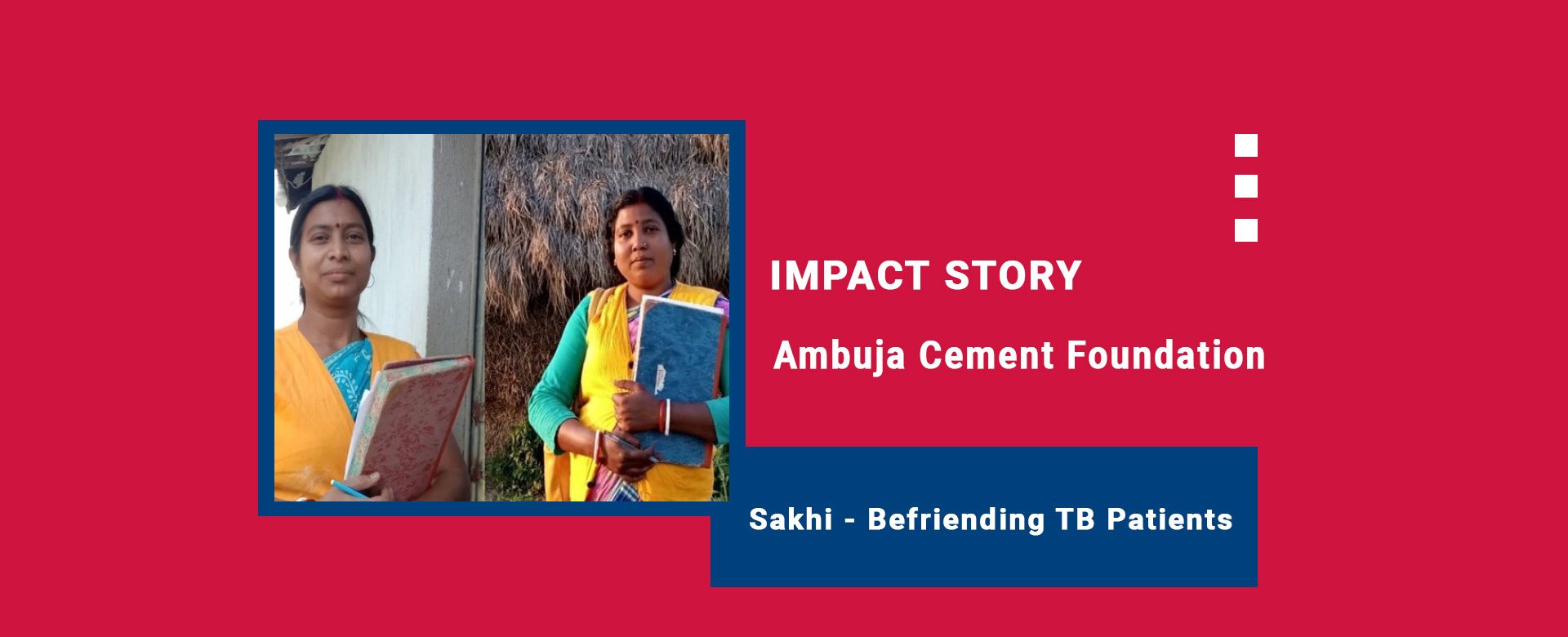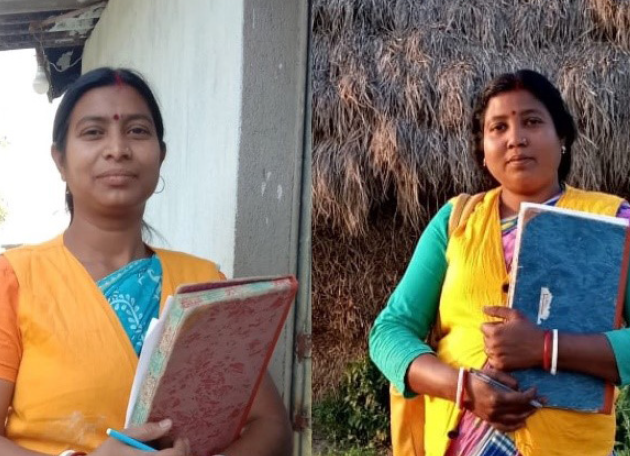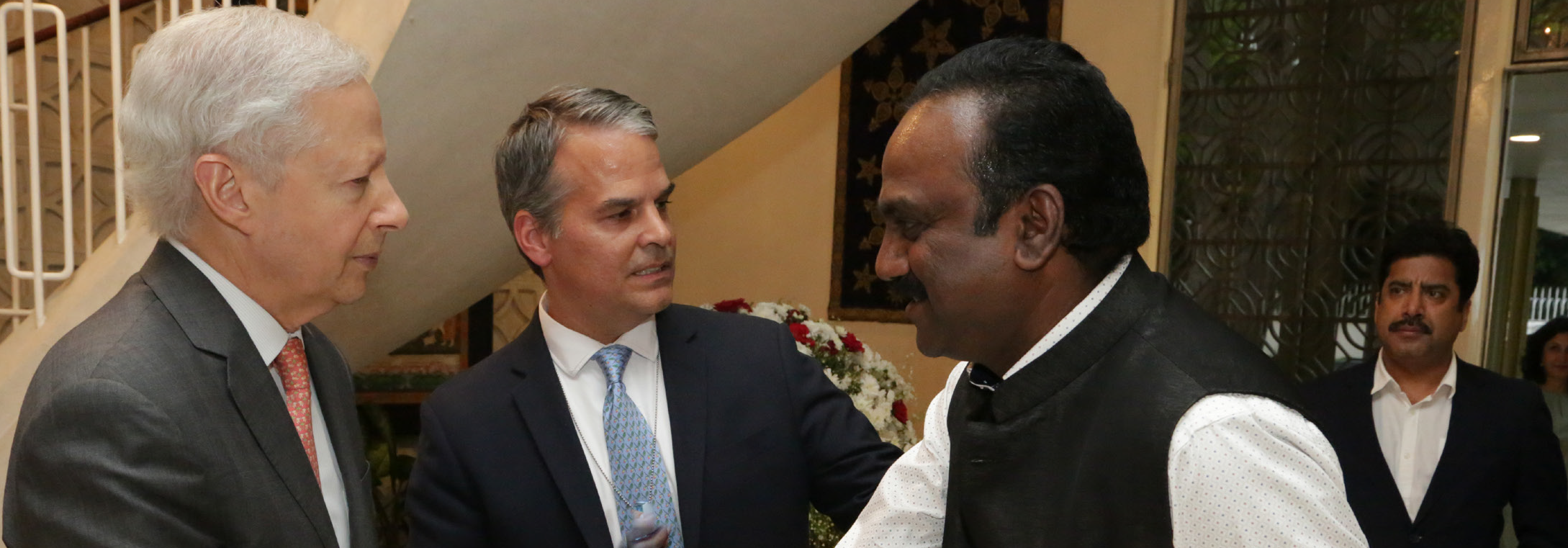
Sakhi - Befriending TB Patients
Since 1993, Ambuja Cement Foundation (ACF) has been directly benefiting and creating significant positive impact for over 2,300 villages and 2.5 million people. With a deep-rooted belief in a community centric approach to address developmental issues, ACF’s health interventions focus on health promotion, high-risk identification, screening and early detection and increasing access to affordable treatment. Responding to the Indian government’s call for TB-Free India, in September 2016, ACF introduced TB care in their ongoing health and sanitation CSR projects across 3 locations – Ambujanagar (Gujarat), Chandrapur (Mahrashtra) and Darlaghat (Himachal Pradesh) covering 94 villages and a population of approx. 75,125 people
Had the ACF Health volunteer not encouraged 19-year old Naqvi to get tested for TB when he left work and returned home from Ahmedabad due to health reasons, he would have not been diagnosed in time. Regular counselling to address the stigma and fear amongst his own family members ensured he completed his treatment. Without this, he would probably have let the infection fester – and never restored his normal life and livelihood and gone back to supporting his family and himself.

Intervention
Sakhi – meaning ‘friend’ in Hindi, are women village health volunteers, identified from within the community for ongoing health projects of the ACF. Sakhis have been trained on maternal child health services and on various health issues like communicable and non-communicable diseases and sanitation. A cadre of 94 such Sakhi’s trained on TB Care have been contributing their efforts to TB control program in the project villages.
ACF applied the following multi-step approach
- Identifying presumptive TB patients
- Collecting sputum for TB testing
- Connecting suspected patients to government facilities
- Educating patients on treatment adherence
- Nutrition counselling
- Conducting regular follow-ups
- Collaborating with government health centers and local administration
- Undertaking joint home visits with TB units and local health officials
- The health clinics of ACF refer presumptive cases to the government facility
- IEC tools including TB symptoms in the local language written on public walls
- One to one sessions, group meetings
- Community awareness sessions
- Celebrating World TB Day
- Leveraging local events like SHG annual meeting, health camps, Krish Mela to disseminate information on TB
- Media engagement to highlight issues
An important component of the intervention is its focus on continuous improvement. This is achieved by collecting regular feedback from their health workers post trainings, as well as from the beneficiaries. Since becoming a CTP member, ACF’s commitment to undertake new TB interventions has intensified and scaling up of the project is being planned.
Feedback on Training by Health Worker – Ms. Chandrawati Devi
The information on TB is good – it can spread through air and can cause infection if the proper precaution not taken by the patient; TB treatment is available free of cost and government is giving free of cost medicine.
Feedback of Beneficiary –
Mr. Mahaveerbhai Praveenbhai VainshI am thankful to Ms. Laxmiben Charniya for her timely support for continuous supply of medicines to me. She regularly visits me at my home to ascertain my progress. My medicines were about to deplete on December 11, 2018 but the concerned multi purpose health worker (MPHW) was not be able to provide and ensure the regular supply of medicines. As soon as Ms. Charniya came to know of my plight, she immediately called TB Unit Kodinar and within 2 hours the medicines were delivered at my home.
Impact
Timely interventions by the health volunteers of ACF have increased TB case identification and ensured accurate diagnosis along with improved treatment adherence and outcomes. In a short span of three years, ACF’s TB intervention has conducted 1,638 community awareness sessions with a focus on encouraging female participation. Of the 32,936 participants sensitized from April 2017 to March 2020, 20,449 were women. 927 cases were referred by Sakhi of which 155 TB patients were diagnosed.
During the year 2019, screening camps were conducted for 15 days in coordination with local Primary Health Centers, where 3,461 employees, truckers, drivers and labourers were screened for TB. In Ambujanagar, Darlaghat and Chandrapur location village based TB forums have been formed and additional interventions aligned with support of local Panchayat bodies. Their work in Ambujanagar has been consecutively awarded and recognized by the District TB Office Gir, Somnath for the last three years.
Key Lessons
With minimal resources ACF was able to address TB in large pockets of high risk, economically weak and vulnerable populations of the community. The program’s success lies in integrating TB messaging and care in pre-existing health care initiatives. This community-based integration model uses women as important change agents, Sakhis, who share a personal rapport with the community, and have strong local knowledge. The model consolidates community-based outreach activities, effective integration with existing services, and regular follow-ups and counselling.
